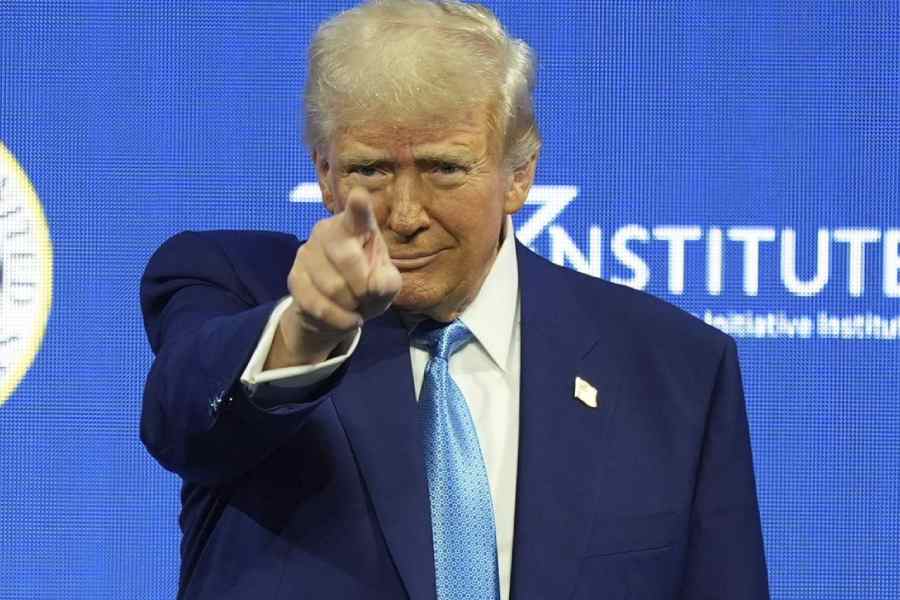Since the end of the Second World War, the United States of America has acted as a security umbrella for western Europe. That role expanded to eastern European nations that joined the North Atlantic Treaty Organization after the fall of the Soviet Union. Now, that eight-decade-old compact appears to be on the verge of collapse as the US president, Donald Trump, attempts to fundamentally reset Washington’s ties with Europe. Mr Trump is looking to mediate an end to Europe’s biggest war in 80 years, the one between Russia and Ukraine, without consulting Europe itself. This week, a US delegation led by the secretary of state, Marco Rubio, met a Russian team led by that country’s foreign minister, Sergey Lavrov, in Saudi Arabia to kickstart talks for a peace deal in Ukraine. Neither Kyiv nor the European Union was at the discussion table.
Mr Trump quickly shut down protestations from the Ukrainian president, Volodymyr Zelensky, over the snub by accusing Kyiv, in effect, of starting the war. Moreover, senior members of Mr Trump’s administration have bluntly told Europe that it must take greater responsibility in securing its own defence in the future.
There are other areas of growing stress as well. At the Munich Security Conference, the US vice-president, J.D. Vance, accused Europe of trampling on free speech and of engaging in censorship by not mainstreaming far-Right parties like the Alternative for Germany whose leaders have been accused of attempting to rewrite Germany’s Nazi-era history. Elon Musk, the world’s richest man and an ally of Mr Trump, has also attempted to boost the AfD ahead of Germany’s elections on Sunday, drawing allegations of election interference from the government in Berlin. Mr Trump has also threatened major tariffs against European nations which could deal a blow to transatlantic trade. Against this backdrop, the French president, Emmanuel Macron, appears to be leading efforts in Europe to evaluate both how the continent can influence Mr Trump to treat it like the ally it is and what Europe can do to mitigate the risks emerging from Washington’s sharp policy swerve.
But Europe faces major challenges in these efforts. Decades of dependence on US security and financial systems mean that the decoupling from Washington is not going to be an option for Europe. In recent years, Europe’s dependence on American tech companies has titled the balance in this equation even further. With major tech giants like Meta, Google, X and OpenAI effectively bending the knee before Mr Trump, with some even encouraging him to take on European regulations, concerns over the
continent’s lack of tech sovereignty have grown. Europe is also deeply divided on how to address the chaos thrown its way by Mr Trump. Some nations, for instance, are willing to send peacekeepers to Ukraine after a deal with Russia; others are opposed to the idea. Europe cannot meaningfully take on the threats posed by Mr Trump’s policies without first acknowledging its own weaknesses. Only then can it reinvent itself as a force to be reckoned with.










